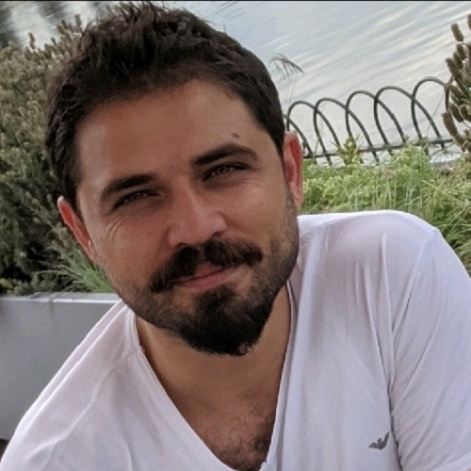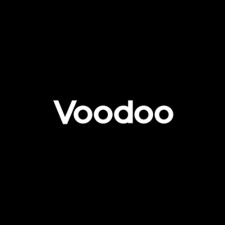MagicLab is the studio behind the recent hit hypercasual game, Destiny Run. Based in Turkey, the studio has worked closely with Voodoo’s local publishing team for over two years now.
Ümit Boncukçu, co-founder at MagicLab and Halil Kaftan, Voodoo's publishing manager in Istanbul, spoke to PocketGamer.biz to share their secrets for success in Turkey’s rapidly evolving games market and the importance of transparency in publishing.

PocketGamer.biz: How did you first get started with game development?
Ümit Boncukçu: MagicLab was originally founded in 2013 by Tolga Şen and me, after becoming close friends from our time studying at university. Our dream was to develop games that would be truly global and downloaded internationally, with anyone able to play.
Between 2013 and 2016, we started working on casual, board and word puzzles and runner titles which gave us our first taste of game development. After 2016, we kicked off a new strategy that saw us develop .io games that were designed to have a fully organic app store optimisation (ASO) dependent growth strategy without any active user acquisition (UA). As a result, we were able to generate millions of downloads entirely without UA.
What attracted you to hypercasual games development?
Boncukçu: Right when we were developing .io games, the hypercasual genre started to rapidly take the spotlight. One of the biggest challenges for small development studios is the time needed to make games, and this new genre allowed us to work around this issue thanks to rapid development. That was extremely exciting for us, so we quickly started working on our first games with this new approach. We closely monitored the development of the industry, and we were able to bring various new ideas to the table, which has since become one of our strengths.

What was most attractive about Magic Lab as a studio? What made them stand out from other studios?
Halil Kaftan: It was their games and their approach to development that was the really special feature of Magic Lab, they evidently had an almost innate understanding of what makes a great hypercasual game. They proved this by making back-to-back hits in 2019 and it really helped them stand out from the crowd.
Our initial impression was only further enhanced when we met them. We talked about games for hours in our first meeting and it was a perfect kickoff to a great partnership.
How did your partnership with Voodoo begin?
Boncukçu: When we made the choice to find a publisher, we were growing very quickly. At the time, we had six team members, which shot up to over forty in the space of a year. As a result, we realised that while we were a much bigger team, we needed support from an experienced partner to help us grow and use our resources effectively. With that in mind, we wanted to avoid working with a partner only interested in the revenue potential of our games. What we needed was a publisher who could help us accelerate the evolution of our marketing and development teams, someone who was a leader in the space and had great experience we could learn from. Voodoo was the obvious choice, and their teaching and guidance has helped us to enhance our development greatly.
...we realised that while we were a much bigger team, we needed support from an experienced partner to help us grow and use our resources effectivelyÜmit Boncukçu
What support has Voodoo offered when it comes to developing your games?
Boncukçu: Voodoo has supported us on every level, from ideation, prototyping, teaching, and of course, publishing our games. They are always sharing new information and ideas relating to current trends, as well as examples of success and failures that have helped us avoid pitfalls in our development.
With them, we are able to access a wealth of information about the testing results of past projects, which has given us a transparent insight into the direction of our projects and made the iteration process far more effective.
What tools and resources does Voodoo offer to its partners?
Boncukçu: The short answer? Everything you need. But the most important resource is knowledge, and that's something Voodoo is very eager to share. They are extremely transparent and proactively share their opinions with us, with no hesitancy. It's a very trusting relationship.
Kaftan: We provide multiple tools and resources to support studios at different stages of development and growth. A key tool we offer is our suite of testing and ideation materials, such as self-serving platforms that offer studios easy-to-digest results. Our e-learning library gives teams access to case studies, product insights and core hypercasual knowledge. Furthermore, we have regular meetings with the teams to help them develop their ideation process, sharing feedback and related examples to support their planning.
We provide multiple tools and resources to support studios at different stages of development and growthHalil Kaftan
How does your publishing manager support your day-to-day development?
Ümit Boncukçu: We always have a bunch of ideas and questions, which our publishing manager, Halil, is able to rapidly feed into. He provides data-driven answers, and he offers feedback on ideas quickly and honestly. This ensures we are always focusing on the most effective path to results.
How much creative freedom does Voodoo offer studios?
Boncukçu: We have complete freedom when we are working with Voodoo. They are focused on sharing data and insights with us, with the verdict on game development always being in our control. They support us in channelling and isolating creative ideas to focus on, rather than defining our path to success for us.
Kaftan: It's a big feature of Voodoo’s operating ethos that studios are the key creative element of game development, and that publisher meddling only hurts the process. We share our knowledge and let studios use the information to make the best possible decisions for their games, mixing our insight and their creativity.
One example is the use of ‘pets’ in Destiny Run, inspired by children's toys. This creative choice was entirely their decision, supported by the data and information we shared with them.
It's a big feature of Voodoo’s operating ethos that studios are the key creative element of game developmentHalil Kaftan
How has Voodoo helped grow your business overall since you started working together?
Boncukçu: They have helped beyond just supporting our ability to generate profit from our games and scale our projects. They have supported us with benchmarks that let us know what our strengths and weaknesses were as a developer, helping us to build our ability to deliver further hit titles in the future
How important is communication and transparency when working with development partners?
Kaftan: It's everything in a partnership. Success comes from sharing knowledge and discussing ideas openly with each other, alongside transparent testing that gives honest feedback, to better define the appropriate next steps.
We get to see the development process of many games in our role as a publisher, and we feel it's extremely important to be able to share that information. Our end goal is to support our partners into becoming self-sustaining and independent, giving them the stepping stones they need to reach the next level.
Being able to frankly discuss results and data doesn’t just make great games, but helps to turn good studios into leading ones.
You also have to be calculating and fairly ruthless with data, deciding what ideas to push forward and what projects to killÜmit Boncukçu
What do you think is the key to making a successful hypercasual game?
Boncukçu: Motivation is a key factor, there has to be the drive to succeed and willingness to make a hit game. It sounds so simple on paper, but this can be a defining factor in accelerating the speed of your studio’s learning and how successful your future can be.
You also have to be calculating and fairly ruthless with data, deciding what ideas to push forward and what projects to kill. Having an understanding of previous titles is a game-changer here, as it lays out a path for you to follow, and indicates what could make or break your title.
Make sure to also keep a close eye on competitors’ games, understanding what worked for them, and what could work for you in your own title.
The final, and most important rule from our perspective, is that there are no shortcuts. You have to keep developing, testing and iterating if you want a hit. It can be hard work, particularly if you have to kill an idea you love, but always trust the data. It inevitably wins in the end, no matter how much you want to deny it!
How important is testing to ensure your game will be a success?
Boncukçu: As with all things in life, it's impossible to be certain exactly how things will play out. But, through multiple tests across marketability, performance and other metrics, you can get a reliable picture at an early stage.
Always make sure, if you can, to test how UA, monetisation, retention and average playtime to get an impression of if your game has the right indicators before you invest a ton of development time.
There really is no other way to get a good idea of if you have a successful title on your hands, but following this process will be guaranteed to put you on the right path to success.
If you have a game you think Voodoo might be interested in, you can contact the company here.





















